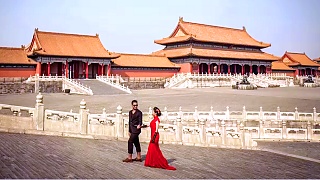
|
With Feeding Foca ...
Visitor Guide to Shangri-La
Introduction
Shangri-La, officially known as Zhongdian, is a picturesque county in Yunnan Province, China. Renowned for its stunning landscapes, rich Tibetan culture, and spiritual ambiance, it is a must-visit destination for nature lovers and cultural enthusiasts alike.
Top Attractions
1. Songzanlin Monastery
Known as the "Little Potala Palace," this Tibetan Buddhist monastery is the largest in Yunnan. Explore its intricate architecture, vibrant murals, and serene atmosphere.
2. Pudacuo National Park
A UNESCO World Heritage Site, this park features pristine lakes, lush forests, and diverse wildlife. Don't miss Shudu Lake and Bita Lake.
3. Dukezong Ancient Town
Wander through this historic town, visit the Giant Prayer Wheel, and enjoy panoramic views from Guishan Hill.
4. Tiger Leaping Gorge
One of the deepest gorges in the world, it offers breathtaking hiking trails and stunning views of the Jinsha River.
Local Culture
Shangri-La is deeply influenced by Tibetan culture. Visitors can experience traditional Tibetan festivals, sample local cuisine like yak butter tea and tsampa, and explore handicrafts such as Thangka paintings.
Travel Tips
Best Time to Visit: May to October for pleasant weather and clear skies.
Altitude Sickness: Shangri-La is at a high altitude (3,200 meters). Take time to acclimatize and stay hydrated.
What to Pack: Warm clothing, comfortable shoes, sunscreen, and a reusable water bottle.
Respect Local Customs: Dress modestly when visiting monasteries and always ask for permission before taking photos of people.
How to Get There
Shangri-La is accessible by air, road, and bus:
By Air: Diqing Shangri-La Airport (DIG) has flights from major cities like Kunming and Chengdu.
By Bus: Regular buses connect Shangri-La to Lijiang and Kunming.
By Car: Scenic drives are available from nearby cities, but be prepared for mountainous terrain.
Where to Stay
From luxury hotels to cozy guesthouses, Shangri-La offers a range of accommodations. Popular options include:
Songtsam Retreat: A boutique hotel with Tibetan-inspired decor.
Shangri-La Old Town Inn: Located in the heart of Dukezong Ancient Town.
Budget Hostels: Affordable and friendly options for backpackers.
Conclusion
Shangri-La is a magical destination that offers a perfect blend of natural beauty and cultural richness. Whether you're hiking through stunning landscapes or immersing yourself in Tibetan traditions, your visit will be unforgettable.
|

 ZhengZhou 郑州 night walk
ZhengZhou 郑州 night walk





